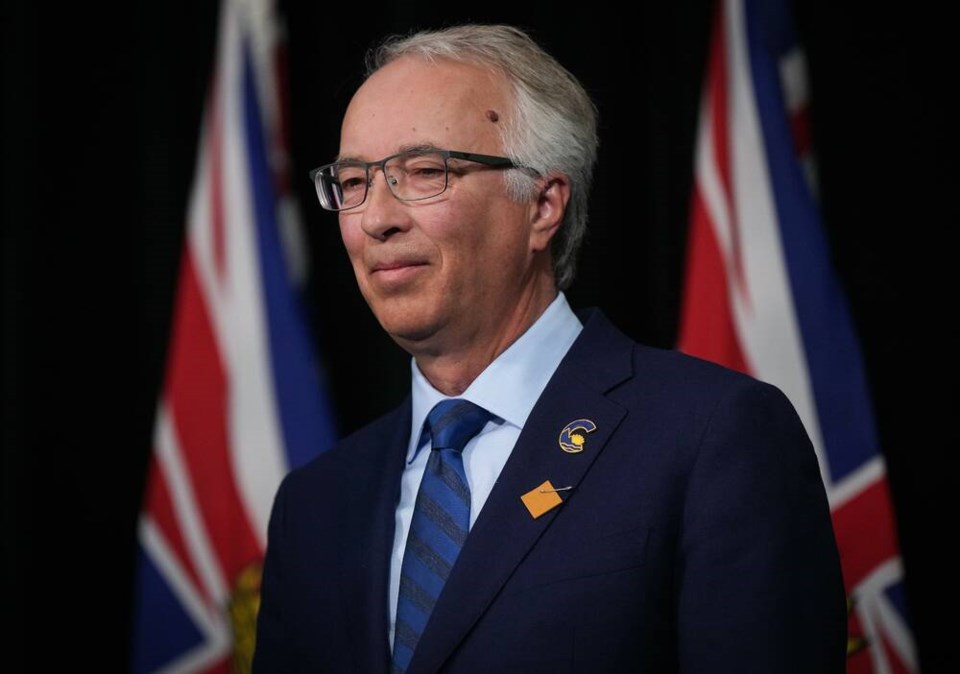On paper it’s called the 43rd Provincial General Election of British Columbia. But at this point, we might as well just call it the Flip-Flop Election, after yet another party leader executed an out-of-the-blue policy reversal on the campaign trail.
First it was BC NDP leader David Eby on the carbon tax and involuntary care, last month.
And now it’s BC Conservative leader John Rustad, who announced he would be keeping DRIPA—B.C.'s Declaration on the Rights of Indigenous Peoples Act—after months of campaigning specifically on repealing the legislation.
“When the United Nations was debating UNDRIP, they made it very clear what UNDRIP was supposed to be used for, as a guiding principle, to be able to work together with First Nations, respect First Nations, and to be able to build a future together,” he said Tuesday.
“And that is the intent that we will be continuing to do in British Columbia. So we'll continue to use UNDRIP as a guiding principle.”
For now, anyway.
“However, we are looking at any legislation or approach that this government has put in place that is creating barriers or friction, particularly when it comes to reconciliation,” added Rustad.
“And when, if, that is what is found, which I've seen happening already with DRIPA, we will be looking at replacing it and putting in legislation that makes more sense for people in British Columbia.”
So, UNDRIP stays. Until it doesn’t. Sometime in the future. Maybe.
That was not Rustad’s original position, stated back in February.
“We must also repeal the United Nations Declaration of Rights of Indigenous Peoples, which was established for conditions in other countries—not Canada,” he said in a statement at that time with the headline “BC must stop the NDP’s assault on land rights and repeal UNDRIP.”
Rustad spent most of the year wrapping UNDRIP up into other fights, including the NDP’s brief but aborted attempt to change the Land Act to move to joint decision-making with First Nations on Crown land.
“It is an assault on your private property rights and our shared rights to use Crown Land,” said Rustad.
“Conservatives will defend your rights to outdoor recreation—and your water access, as well as B.C.’s mining, forestry, agriculture sectors and every other land use right British Columbians currently enjoy.”
The position to scrap UNDRIP was itself a reversal of Rustad’s original position in support of the legislation in 2019 when it was introduced by the NDP government.
“We talk about UNDRIP as a document advancing reconciliation and human rights, and I think those are important values,” Rustad told the legislature at that time. “It’s just the right thing to do.”
So Rustad supported UNDRIP, then opposed it, and now will leave it in place and maybe modify it in the future.
BC Conservatives don’t feel that’s much of a policy shift, arguing Rustad’s always been broadly supportive of the ideas that underpin UNDRIP, but takes issue with the specific way the NDP have implemented them along the way.
Still, it’s hard to imagine Rustad did not hear the rising concerns from First Nations leaders on his position.
Regional Chief of the B.C. Assembly of First Nations Terry Teegee, for example, had called it “a very idiotic idea.”
Even BC Conservative candidate A’aliya Warbus, a member of the Sto:lo Nation who is running for Rustad in Chilliwack-Cultus Lake, admitted she initially found her leader’s position on UNDRIP concerning and it was “top of mind” in their discussions.
“What the heck? Why would we take this legislation? We fought hard, Indigenous communities, for our rights and recognition of those rights, and upholding social determinants of health in our communities, and this legislation helps us do that,” Warbus told , adding that the UNDRIP legislation is “97 per cent good.”
She ended up “really satisfied” with the issue after Rustad “explained” how UNDRIP wasn’t the right approach in a province with more than 200 First Nations whose territories overlap, she told CP.
Perhaps Rustad just figured repealing UNDRIP wasn’t worth the protracted fight with Indigenous leaders at the mid-way point of an election campaign in which he’s within striking distance of actually winning.
The damage, though, is already done when it comes to some.
The Moose Hide Campaign, which promotes anti-racism and awareness of gender-based violence, publicly withdrew Rustad’s permission to wear its campaign pin in an open letter Tuesday.
Campaign spokesperson Raven Lacerte did not cite specifics in the letter, other than a feeling Rustad, who has been a longtime supporter of the campaign, had failed to uphold certain standards.
The BC Conservatives have yet to respond. It’s the kind of fight Rustad doesn’t need, and can’t win, mid-way through an election campaign. Which is likely the reason for the shift on UNDRIP too.
Rob Shaw has spent more than 16 years covering B.C. politics, now reporting for CHEK News and writing for Glacier Media. He is the co-author of the national bestselling book A Matter of Confidence, host of the weekly podcast Political Capital, and a regular guest on CBC Radio.



